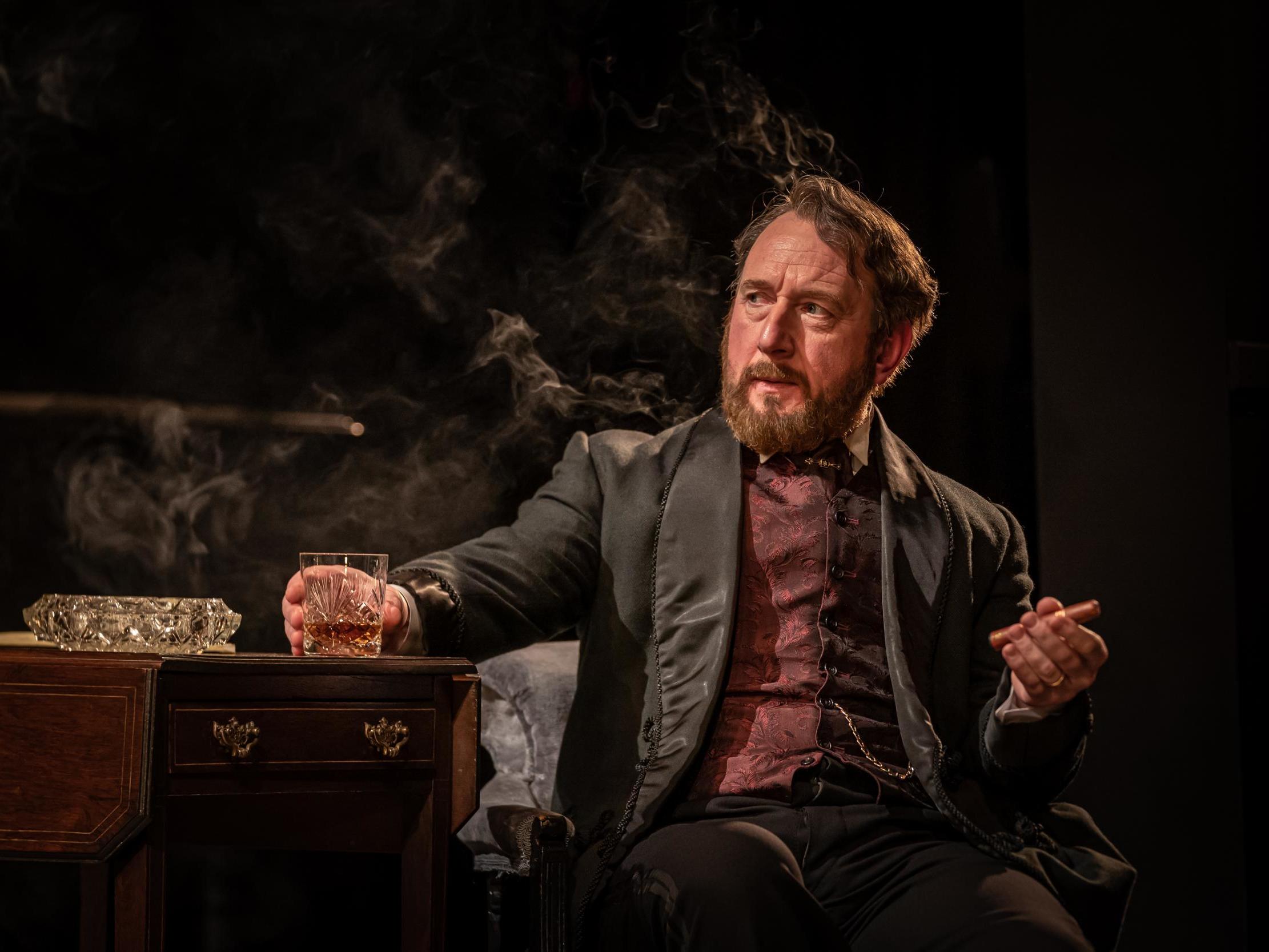Leopoldstadt review, Wyndham’s Theatre: Tom Stoppard’s shiveringly sensual journey through the terrible 20th century is a masterpiece
Patrick Marber has cast the show with great flair – Adrian Scarborough has never been better than as Hermann Merz and Luke Thallon is stunningly talented as Fritz and Leo

★★★★★
When asked where he picked up the ideas that animate his plays, Tom Stoppard once had the habit of saying “Harrods”. It was a self-deprecating tease that acknowledged how some folk used to think that their subject matter (linguistic philosophy in Jumpers, the political implications of art for art’s sake in Travesties) was all a bit of an intellectual pick’n’mix. Then came the emotional watershed of Arcadia (1993) and The Invention of Love, the 1997 play that is my personal favourite and that I thought was his masterpiece. Until now.
You could not pick up the inspiration that suffuses Leopoldstadt in Harrods – “not even for ready money”, to steal a gag from a comedy that Stoppard has pastiched several times, The Importance of Being Earnest. The new piece promptly establishes itself as magnificent at its first outing in a production by Patrick Marber.
It does haunting justice to the variousness of its humanity. And thanks to the director’s masterly feel for how to play around with the painterly and the musical aspects of a production, it manages to take you on a shiveringly sensual journey through the decades of the terrible 20th century.
This is a personal play of a most unusual and generous kind, a way of facing up to the implications of the “charmed life” that the dramatist believes himself to have led since 1939 when his family (who lived in Moravia – which is now part of the Czech Republic) fled the Nazis and moved to Singapore. In the 1990s, he discovered that many of his forebears were Jewish and had perished in Auschwitz. It was not his fault he had not known and the case is complex about the factors that led to the depletion of the photograph album. The play is more than an act of restitution. Indeed, it is more than an act of reconstitution. Set in Vienna, it follows the intricate fortunes of the Merz family – Jewish cloth manufacturers, some of whom married into the Catholic community. We first meet them in their prosperous overfurnished apartment at Christmas 1899, trimming the tree (one of the children makes the faux pas of topping it with the Star of David). Ruefully funny and unresigned Grandma (excellent Caroline Gruber) dispenses chocolate cake, whipped cream and observations that she can stomach the Christian feast of Christmas (because Jesus, being a baby at the time, bears scant responsibility for it). Easter is a different matter.
The actors achieve miracles of symbolic plate balancing. The exposition and running cultural commentary are light and dancing, rarely succumbing to the stodge of the pudding table. Marber has cast the show with great flair. Adrian Scarborough, who played the sidekick to David Tennant’s Don in Marber’s Don Juan in Soho, has never been better than as Hermann Merz, the head of the firm who has married a Catholic, and at first, over his whisky and cigar, is the chief eulogist of Vienna as a cultural paradise for Jews who want to be assimilated. “My father wore a caftan, my father went to the opera in a top hat, and I have the singers to dinner...” he boasts.
The stunningly talented young actor Luke Thallon plays two antithetical parts. He is Fritz, the sexually conceited lieutenant who has been vigorously making love to Gretl (Faye Castelow), wife of the unsuspecting Hermann, most afternoons when she is officially out of the house having her portrait painted. For me, the most wrenching scenes in the piece are when Hermann (who thinks that the lieutenant has been insulting his wife merely in conversation rather than between the rank sheets) goes to challenge the officer to a duel. With a horribly playful satisfaction, he puts Hermann through the wringer of humiliation twice over, telling him that his regiment considers that Jews have no honour to defend. Even those who have converted to Catholicism are beneath the military’s dignity, sullied by the fact of a Jewish mother.
In 1955, he also plays Leo, the Jewish boy who was spirited away to a mostly English upbringing and is the nearest a character comes to approximating Stoppard’s relationship to this material. His prickly re-encounter, after many years, with Nathan (magnetic Sebastian Armesto), his brilliant mathematician of a cousin, seethes with asymmetric resentments. “I’m sorry you had a rotten war,” says Leo, underestimating the tactlessness of the remark. The play is a brilliant exercise in concision (the scene set in an “Ayranised” Merz household on the eve of Kristallnacht is shattering in all kinds of ways). And there is tart comment, conveyed via Leo’s patriotic pride in fair play, parliament, the royal navy, the royal family, and asylum for exiles and refugees. It is designed to ring a little hollowly in our current circumstances.
Leopoldstadt would make a refulgent swansong for the octogenarian writer, just as it is destined to make a great film (for Spielberg), but let’s hope that its deserved success will give Stoppard a new lease of creative life in the theatre. It’s a masterpiece. Go.
Join our commenting forum
Join thought-provoking conversations, follow other Independent readers and see their replies
Comments